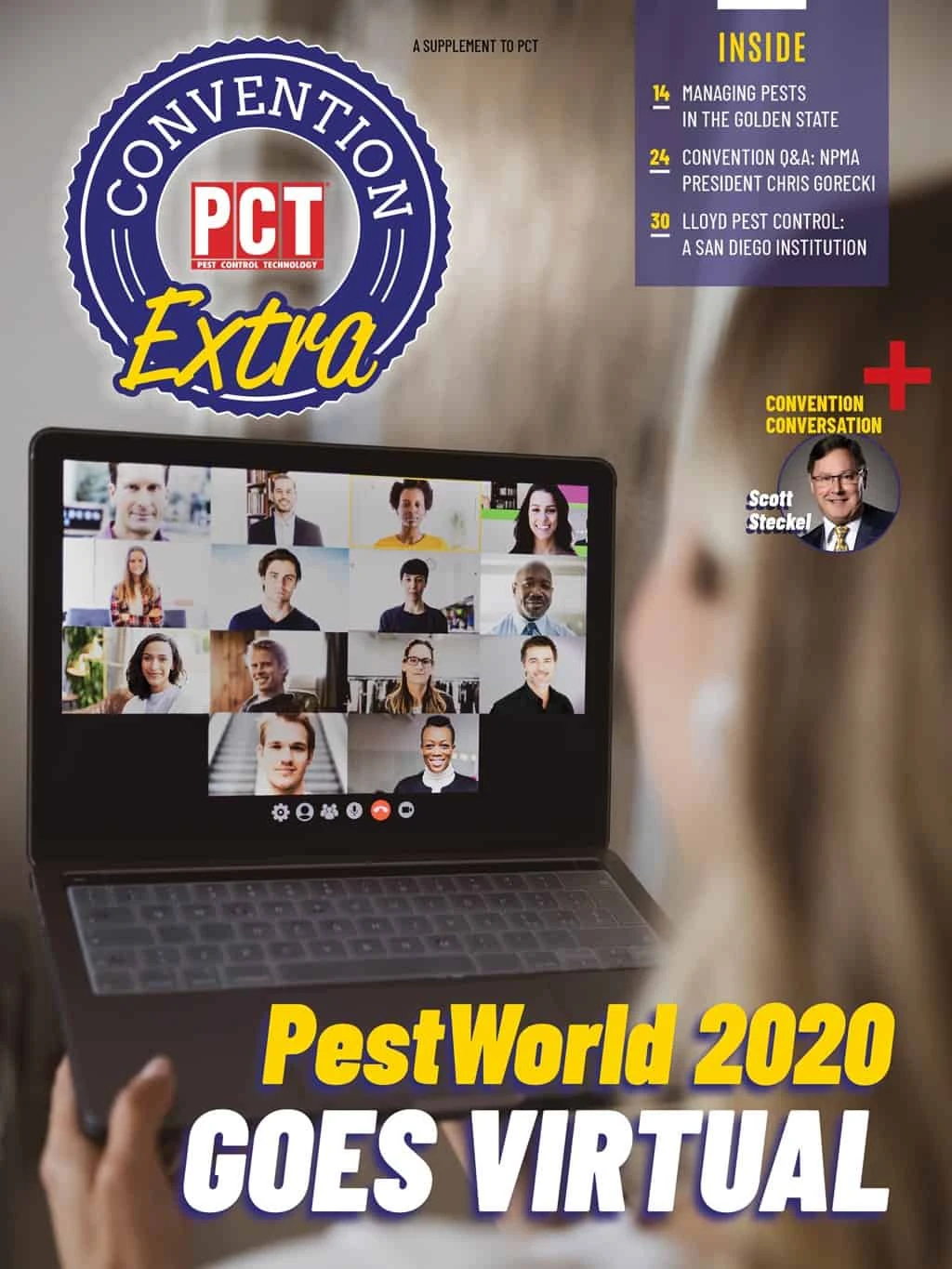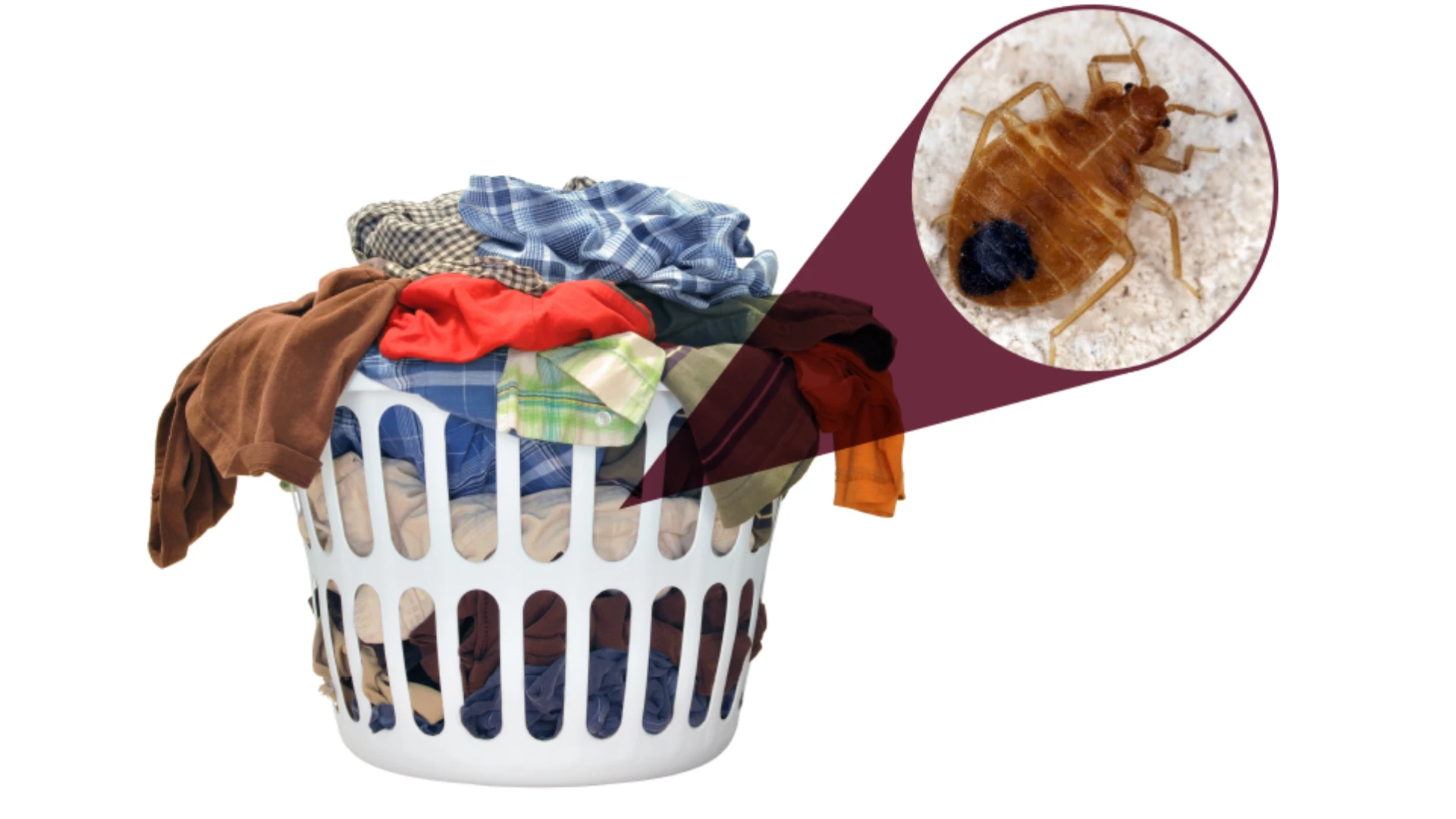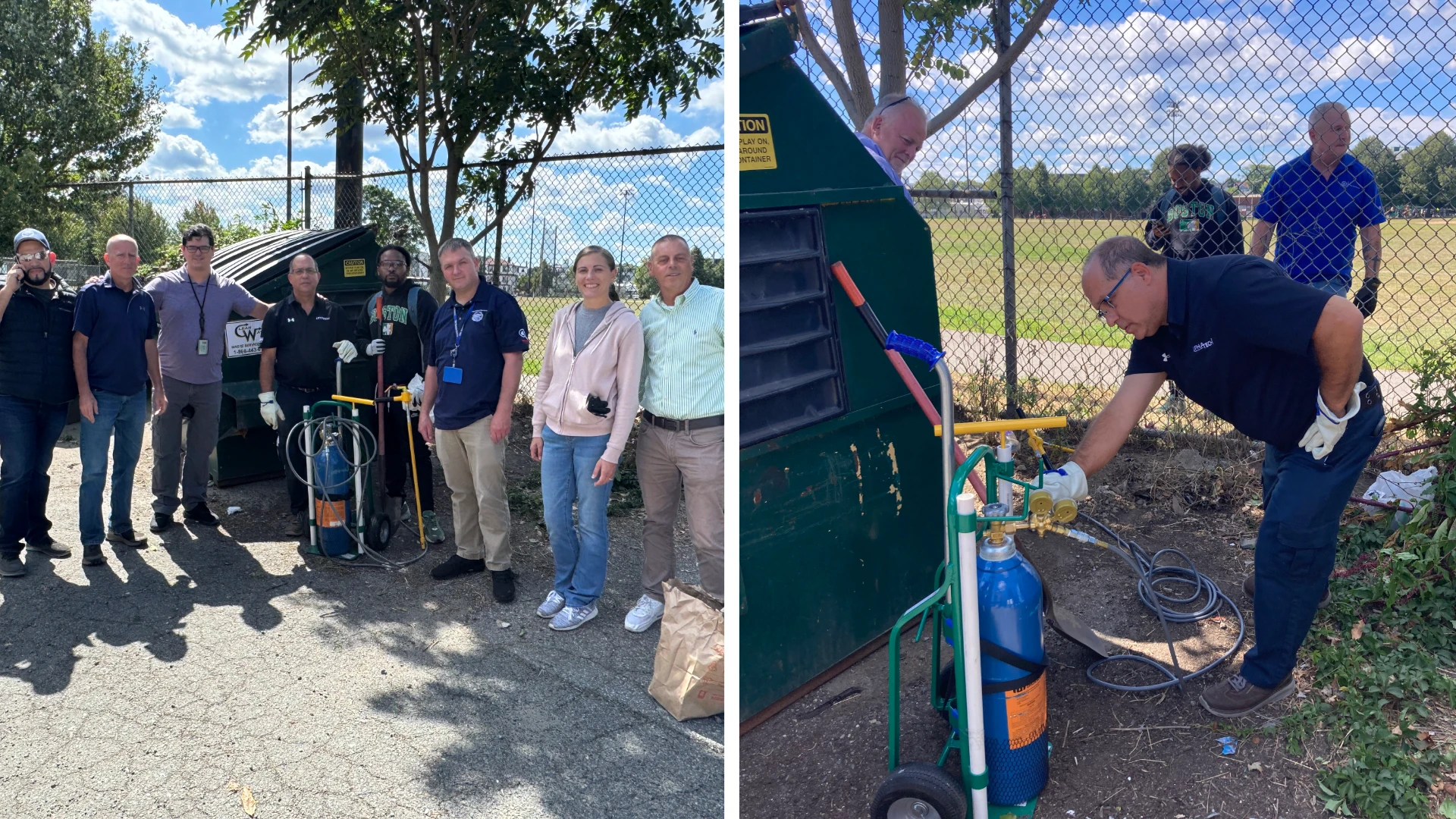
A graduate of the U.S. Air Force Academy with a bachelor of science degree in aeronautical engineering, and a 13-year military career veteran, third-generation PMP Scott Steckel has a unique background and a variety of experiences in the pest control industry.
Steckel was the vice president and co-owner of Columbus, Ohio-based Varment Guard Environmental Services for 22 years. Varment Guard’s four owners sold the firm to Plunkett’s Pest Control in 2018, making it the largest acquisition in Plunkett’s history. Steckel said the experience of coming together with Plunkett’s was unlike most industry acquisitions. From the first conversations, there was a cooperation that set the tone for a collaboration between the two firms versus a “takeover.” Steckel said at the time, “This is the part where we put the business book away. We said, ‘How do we get our companies together?
Now as the director of strategic development for Plunkett’s, Steckel’s day-to-day responsibilities include many tasks, including evaluating mergers and acquisitions, serving as the 401(k) lead trustee and running various strategic projects.
In addition to his varied military and business experiences, Steckel brings a unique family history to the role of NPMA president as well. He’s just the third, third-generation president (Chuck Tindol and Russ Ives are the others), following his grandfather and father. Steckel’s grandfather, Dr. H.K. Steckel, was founder of Torco Pest Control Co., and was the association’s fifth president, serving from 1937-38. His father, Jim, served in the role from 1970-71.
Steckel also brings extensive knowledge from his various positions on NPMA committees, the board of directors and the executive committee. He’ll need to draw on all of these experiences as he settles in for one of the most challenging years at NPMA due to the COVID-19 pandemic. Just as his term as president began, NPMA hosted its first virtual meeting, its Executive Leadership Forum (ELF) in June. (NPMA Legislative Day, March 8-10, was held in the nick of time before much of the U.S. shut down mid-March because of COVID.)
ELF is an important meeting for the association because the board of directors meeting and various committee meetings are hosted there. The event, which was largely meetings (no tradeshow) and typically has about 200 attendees, went well in the virtual format.
But a bigger meeting was close on the horizon: NPMA Academy. “Academy is not a ‘do at home’ event,” Steckel said. “It’s the olympics. It’s outdoor. It’s physical. It’s competitive. And it’s team building.”

How was NPMA going to take that event virtual?
After talking to the sponsors of the event, including lead sponsor Corteva, NPMA decided to host the meeting virtually. If NPMA could put aside what the meeting had previously looked like in a live format, at its core, what is Academy really about? “Ideologically and fundamentally it’s about learning. So we remodeled the Academy and as a result it was very much focused towards the speakers and about personal growth,” Steckel said.
The event, which was held in 90- minute increments every other week for seven sessions, had better-than- expected attendance.
Academy was the last meeting before PestWorld, a typically four-day event that features various networking opportunities, keynote and industry speakers, and a jam-packed exhibit hall. Since the event is NPMA’s largest revenue generator, it would be an understatement to say that the idea of changing the event to a digital-only format was scary. But NPMA staff and the board of directors talked with speakers, exhibitors, NPMA members and the decision became clear. “Exhibitors told us they couldn’t come to a face-to-face event,” Steckel said. “And most of the speakers told us the same thing.”

After exploring alternatives (Could the event be held in December or January? Could the event change locations?), the NPMA board made the decision to change the event to a solely virtual one. The next step had staff diving into finding a platform that would recreate the in-person event as much as possible. “We said, ‘Let’s do this. Let’s draw the map to get there,’” Steckel said.
PCT Editor-in-Chief Jodi Dorsch sat down with Steckel at his Columbus, Ohio, office this summer to get his thoughts and goals for his year as president, and to talk (with masks on) about how the association is handling issues associated with the pandemic.
Jodi Dorsch: What are your goals for your term as NPMA president?
Scott Steckel: Two years ago, as I was moving through the treasurer’s time, I started to reach out to the past presidents and ask, “What was your one idea that you really wanted to grasp on to?” So I got insights into the last 10 years’ worth of past presidents’ plans. And they were all very interesting. I came to the conclusion that there are two goals for me. One is the Workforce Development Initiative. That didn’t exist two years ago. It’s a top priority for me because at every meeting, the key problem that PMPs say they run into is hiring. It always comes back to hiring.

Who is our industry trying to hire? Who are we trying to get? Most employees are coming from outside the industry — heating and air conditioning companies, plumbing companies, those kinds of firms. So NPMA asked NPMA Senior Vice President of Public Affairs Cindy Mannes to reach out to all these other industries to learn about their recruiting efforts. She came back and said, “We’re about three years behind the curve and everybody else is way ahead of us. They’ve already got websites up. They’ve already got a lot of things in place. Right now we are behind the curve.” So that was an “a-ha” moment.
If we’d started these initiatives 10 years from now, it would have been way too late. But I don’t think three years is too late. Our industry has tenacity and lots of benefits. So the Workforce Development Initiative (www.pestcontroljobs.com) is my biggest and highest priority.
The other goal — and it’s more an ideology — is that I think that Professional Women in Pest Management is coming into its own. And one of the things that I have been talking about and we’ve taken action on is a sense of more women in the industry. We’ve brought in women into NPMA leadership: Dominique Stumpf, as CEO; and Marillian Missiti (Buono Pest Control) and Faye Golden (Cook’s Pest Control) have come onto the NPMA Executive Committee. We are showing the importance of women in the industry, not only as a part of NPMA leadership, but in the volume of women who are meeting together and mentoring with each other.

JD: What makes you passionate about women in the pest management industry? What about that is so important to you?
SS: When I got married, I married somebody that was mentally and emotionally strong. And I think of our relationship as on equal footing. I’m not relegated to these roles and she’s relegated to those roles. I don’t live in that world. So that’s one of the things that’s not normal when I look around and I still see it happening in NPMA. My intent is to at least confront that and talk through it.
The second reason this is an important issue to me is I’ve worked for two companies with women owners. Varment Guard had a female owner in Sandy Vaive and now I work with Plunkett’s. The leadership team at Plunkett’s has three women on it (including president/owner is Stacy O’Reilly). To me, the goal of having more women in leadership roles adds to the conversation at the table.
The final piece to this is when I’m mentoring, I’m splitting my time equally between men and women. And what I’m finding is the more healthy relationships, the more strong information gathering, the more involved, are the women.

Men don’t talk to other men very often. It’s not a common practice. So this collaboration among women is so much more healthy. I want to encourage that so much. I know there’s a need because we are historically a male-dominated industry with privately held companies. I want it to be that when a husband and wife team own a company together, that the wife feels like she’s welcome at NPMA meetings.
JD: Your dad and grandfather were also NPMA presidents. Does that historical knowledge allow you to bring something extra to the table?
SS: It’s interesting that you share that, because there’s two parts to me in this conversation about NPMA: me and my family’s legacy. The “me” part is, in part, ego driven. I want to make sure that I stand up, do a good job and participate as much as my peers want me to do that. Of course, I don’t want to do that in a way that will dishonor my family and their legacy. I want to honor that.
The second piece, though, is and this is where the humble side comes in, is, I think, “You know what? I don’t want to get the honor of being NPMA president just because I’m third generation. I don’t want to step ahead of everybody else because I’m third generation.” It’s not about my name. I don’t want to live that life at all.

Chuck Tindol (Rentokil, formerly Allgood Pest Solutions) and Russ Ives (Rose Pest Solutions) served before me and they were third-generation NPMA presidents as well. Both of them did a great job leading the industry while honoring their family roots in the background.
From what I can remember from my dad running the business, the pest control industry has changed. In the past, it was generally mostly about residential pest control. Now we’re in commercial and residential and termite and wildlife. We’re public and private companies. We’ve diversified into our breadth of services.
I love the fact that today’s industry is now almost $9 billion. I don’t remember what it was back in the 70s, but it’s just exponential growth today.
JD: You were elected to the NPMA board as a part of Varment Guard; you’re now part of Plunkett’s. Are there any opportunities or challenges there? There’s such a long queue serving on the NPMA board.
SS: When the nominating committee reaches out and lets you know you’ve met the selection criteria, it’s like, “Wow, I’ve always wanted to do this!”
When that happened for me, I was still a young enough age that I was not going to be near retirement when I served. I had enough bandwidth from a time perspective that I could do this. Now, Varment Guard was more of a conservative company — we were $7 million and we had four owners. That’s very unusual and top-heavy. Because of that, we didn’t always have a common voice. My voice wasn’t always the same as the other owners, and not everyone was as involved or as supportive of NPMA as I was.
Before we sold Varment Guard to Plunkett’s, Stacy said, “I understand you’re a part of NPMA and its leadership. And I said, yes. She said, “I’m going to give you whatever you need to make that happen successfully.” That was like a breath of fresh air. I loved that. Stacy told me she was going to give me enough room to let me be at NPMA without feeling overwhelmed within Plunkett’s. So while I may have wanted to do more at Plunkett’s, she wanted to give me that space. Also, she understood that I’d be doing a lot of traveling for NPMA. She had been the chairman at Copesan so she was aware of that commitment. She knew some of the same path, if you will, and the challenges along the way.
I feel plainly different from where I started to now. At first I didn’t feel full support from my own company. And from a financial perspective, we were minimalists. I went to NPMA events, but nobody else went. I would want them to join in and support the association but they just didn’t want to do that. And now, with Stacy, she’s like, “How many people do you recommend going to this event?” She’s very much an industry and NPMA supporter.
JD: What have you learned from the Plunkett’s team that will help you with your NPMA responsibilities? We already talked about Stacy’s support…but what else?
SS: I think there are two parts of that for me. One is culture, which Plunkett’s has helped me understand better. NPMA has a culture in that it’s very family oriented and volunteer driven. We need to voice what that culture means in simple terms, like, “This is how we operate.” I’m writing a one liner of “This is who NPMA is.” Almost like a list of cultural norms. I would never have thought of that inside of NPMA...that comes from my experience at Plunkett’s. I think this one liner is necessary to help new members understand what NPMA is all about. That’s an easier membership sales pitch than NPMA features and benefits, if you will. Who are we and why do we do what we do? Why are we here? That should help membership grow.
The other is that Plunkett’s is a minimalist company. I don’t want to come across as a derogatory term! But at Plunkett’s there is a real focus on a sense of what’s important, of knowing what’s essential and what’s incidental. There are only two things that we have a metric on in our company. One is overall contract net growth. That’s not about one-time services. We don’t even measure that. It’s about contract net growth. Losses are included in that. We’re looking at the overall big picture: Which direction are the contracts growing? The second thing we measure is service quality. That’s not about a callback rate. It only measures customer reviews. How do our customers tell us that we’re doing?
Plunkett’s is centralized with only two offices across 21 states. With so many people who work away from the office, you can’t be successful without a solid definition of who you are. Because if you’re away from the office, you could feel lost or isolated. The only way for that to happen is to have such a solid footing on who you are.
JD: The Ohio Pest Management Association is traditionally a vocal and large contingent at NPMA Legislative Day. Why is that? Why do you think the folks from your home state of Ohio feel so passionate about regulatory issues?
SS: I would have to say that’s because Lonnie Alonso (Columbus Pest Control) serves as the SPAR (State Policy Affairs Representative) for Ohio. He is the person that at every OPMA board meeting gives a roughly one-hour talk on everything going on, both state and federal level. As a part of Plunkett’s, I have attended other state board meetings and they almost never have any more than a two-minute conversation about a legislative agenda. They might mention a PAC fund that they’re going to support. But they don’t talk about what’s going on at the state level, at the state house or at the national level, in any depth like OPMA talks about.
For Ohio, the issues become important because Lonnie talks about them. He’s got a passion for it. And I can only assume that’s what instills in us a desire to go to Legislative Day because we get more of the same.
Lonnie and I are like brothers and we converse several times every week. I have to give him so much credit for being on top of regulatory affairs because that’s his passion. He loves it. I honestly don’t live at that same level. He will call and say, “I need you at this meeting” and I’ll go to the meeting. But he instigated it. He drives it. He’s the guy that makes it happen.
JD: How is NPMA serving as a resource for members during the pandemic?
SS: On day one, when everything was shutting down, that’s when NPMA started working on advocating for our industry. At the federal level, getting pest control listed as an essential business into documents and finding that clarity on how we could continue to do services as we always had been, with of course some caveats, was so critical. For example, NPMA explained that we’ll perform residential services from the outside. We wanted to make sure the customer felt safe when we were having to do a close interaction, but we explained that we were still a viable business.
JD: Has NPMA had to shelve any initiatives because of COVID-19 or has it been full steam ahead?
SS: Full steam ahead. They haven’t been able to travel and participate in meetings since March. They’ve provided training via the education center and QualityPro. PPMA has continued to provide growing consumer touches. Of course, the event staff is the one that’s really having to make the greatest massive change.

Explore the Convention Extra 2020 Issue
Check out more from this issue and find your next story to read.
Latest from Pest Control Technology
- Rentokil Terminix Expanded in Key Markets with 2024 Acquisitions
- In Memoriam: Joe Cavender
- Certus Acquires Green Wave Pest Solutions
- Liphatech Adds Alex Blahnik to Technical Team
- Do the Right Sting: Stinging Insect Identification, Management, and Safety
- VAGA's 8th Annual Veterans Thanksgiving Appreciation Dinner
- Clark's Blair Smith on the Response to Increased Dengue Fever Cases in Southern California
- WSDA, USDA Announce Eradication of Northern Giant Hornet from U.S.





